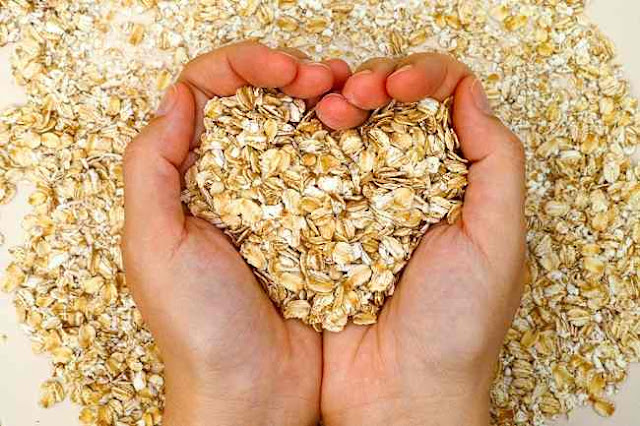Healthy Foods For People With High Cholesterol
High cholesterol is no longer just a problem for parents, even at a young age someone can suffer from cholesterol. Eating healthy food can help you reduce the level of cholesterol in the blood.
Many eating unhealthy foods, like fast food, can increase cholesterol levels. If cholesterol is lodged in our body it can cause several diseases such as heart attacks and strokes. If you already suffer from high cholesterol, then you should keep food by eating healthy foods, to avoid dangerous complications.
Healthy Foods for People with Cholesterol
To reduce the level of cholesterol in the blood, you need healthy foods that can reduce cholesterol. The following are foods that are good for you to consume:Barley and oats
Consuming more of these two types of food can bind cholesterol in the intestine and prevent it from being absorbed by the body. This happens because both of these foods contain a fiber called beta glucan. Consumption of about 3 grams of food rich in beta glucans a day is believed to reduce cholesterol in the body. In addition to these two foods, red beans also contain soluble fiber. You can make oat porridge for breakfast and mix it with fruit like bananas to add fiber to your food.
Fruits and vegetables
Eating fruits and vegetables can reduce high cholesterol. Because, fruits and vegetables are foods with low saturated fat. If you consume more then you will feel more full, thereby reducing the possibility of eating foods with saturated fat. Consumption of foods rich in fiber such as broccoli, apples, pears, sweet potatoes, strawberries and eggplants can reduce cholesterol.
Nuts
The benefits of nuts can reduce cholesterol in the blood because they contain protein, vitamin E, unsaturated fat, magnesium, fiber, and potassium. You can reduce your cholesterol by 5% if you consume around 1-2 ounces of nuts a day.
Brown rice
Compared to white rice, brown rice has more nutrients and is rich in fiber. The content of fiber in brown rice is what can help reduce cholesterol.
Foods that contain soybeans
Foods such as sugarless soy pudding, soy milk, edamame beans and tofu contain protein that can reduce cholesterol in the blood. Taking it as much as 0.5 ounces a day can reduce your cholesterol by at least 6%.
Fish and Omega 3 fatty acids
Fish like salmon, tuna, tuna, and sardines contain omega-3 fatty acids which are good for lowering blood pressure. Omega 3 does not affect blood cholesterol (LDL) levels, but it can reduce the risk of blood clots forming. Eat at least two to three times a week. Omega 3 can also reduce the chance of sudden death from heart disease and reduce triglyceride levels in the blood.
Avocado
One of the benefits of avocados is that it is rich in unsaturated fat. Try to eat avocados in the form of fruit, not in the form of juice that has been mixed with sugar and milk. People with high cholesterol need to limit their intake of saturated fat. The limit on saturated fat intake in women is 20 grams, while the limit for men is 30 grams.
Foods that are fortified with unsaturated fats
Maintaining a daily intake of saturated fat below 20g (women) and 30g (men) is very important for lowering cholesterol. You can replace it with unsaturated fat. Like olive oil, sunflower, corn, vegetable oil, nuts and other grains. But you should avoid palm oil and coconut oil because vegetable oils are high in saturated fat.



Komentar
Posting Komentar